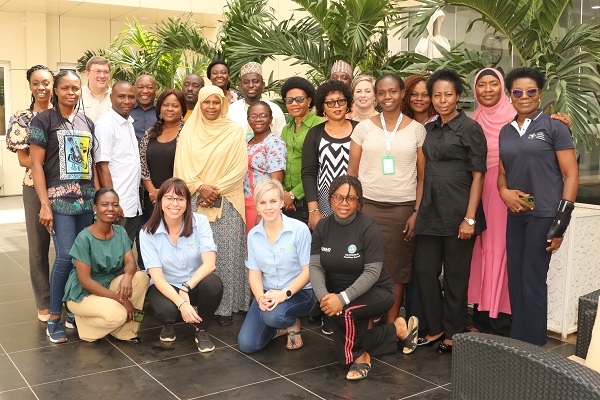North-West University-led nutrition project progresses through leadership development
The real significance of a project can often be measured in its sustainability long after it has been completed. Experts from the North-West University (NWU) are making impactful contributions in Nigeria as part of the largest-ever investment in nutrition leadership development in Africa. They now aim to secure and expand the footprint of the project long after it has been completed.
Staff from the School of Physiology, Nutrition and Consumer Sciences and the Centre of Excellence for Nutrition (CEN) have been working tirelessly with their counterparts in the Nigerian academic sector to ensure the sustainability of the impact of the Leadership Development for Accelerated Progress in Nutrition in Nigeria (LEDA-NN) project.
LEDA-NN is a leadership development programme to the value of R20 million that is funded by the Bill and Melinda Gates Foundation – the largest investment ever in nutrition leadership development on the African continent.
Prof Johann Jerling from CEN says ensuring the sustainability of the impact of the project builds on the experience of staff members in the Nutrition Department of the School of Physiology, Nutrition and Consumer Sciences who have been intentionally embedding leadership development in their undergraduate Dietetics curriculum for the past four years.
According to Dr Cornelia Conradie, project leader, the lessons learned from their own initiatives in nutrition, combined with their experience of the NWU’s African Leadership Programme (ANLP), have filled them with both passion and insight to develop a leadership course for postgraduate students that will continue long after the completion of the LEDA-NN project.
At a recent workshop in Lagos, Nigeria that was presented by Dr Conradie and Prof Robin Dolman-Macleod, six Nigerian universities committed to embedding this leadership course in their postgraduate Nutrition curricula in the next year. In addition, the NWU’s collaboration with the University of Ghana, headed by Prof Dolman-Macleod, has also expressed interest in being a part of this ground-breaking initiative.
Dr Conradie says they are piloting the leadership development course at doctoral level now, but the interest in doing this at undergraduate level is almost overwhelming.
“Exploring how leadership development can successfully be embedded within the undergraduate curriculum without adding to the credit load, and by taking large student groups into account, will be the next phase of the project.”
She says it is immensely satisfying to see how their efforts in Teaching and Learning have an impact and are gaining traction at an international level.
“The overall aim of this project is for it to have a meaningful impact on the nutritional status of women and children across the continent.”
Prof Jerling concludes that the progress to date in the LEDA-NN project is yet another step towards fulfilling their vision to ensure that leadership development forms a part of the training of nutrition professionals across the African continent. “In doing so, we are preparing them better for the workplace.”

